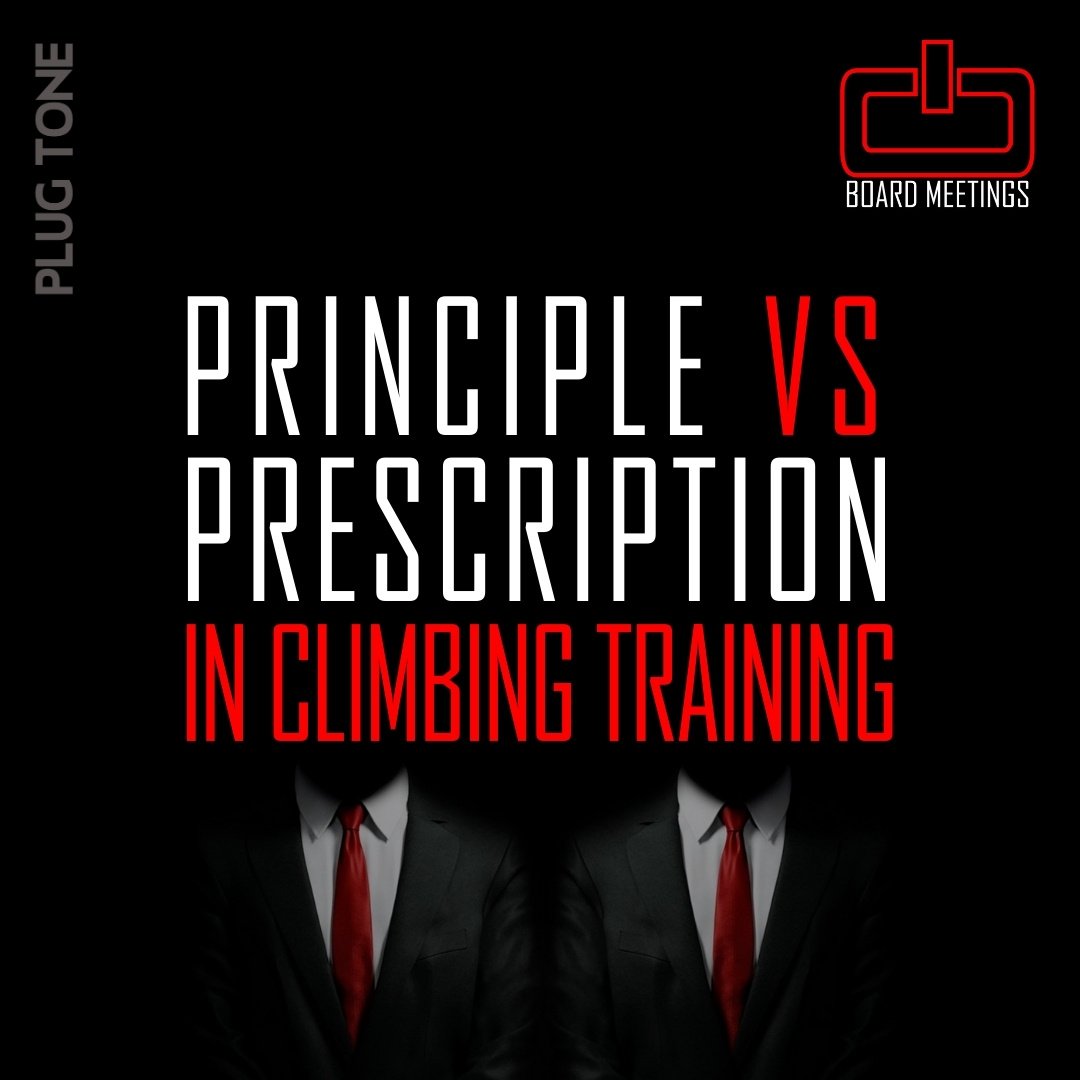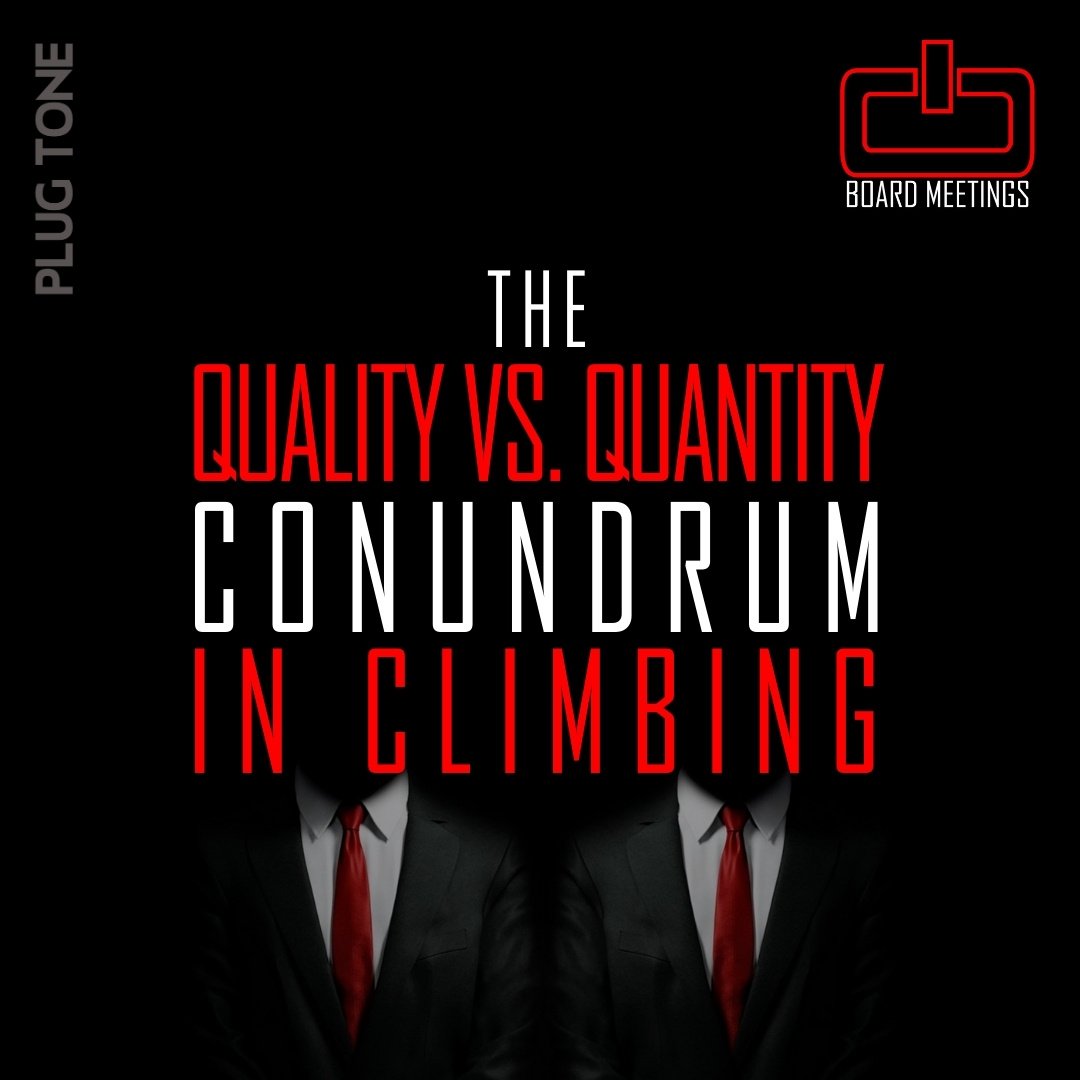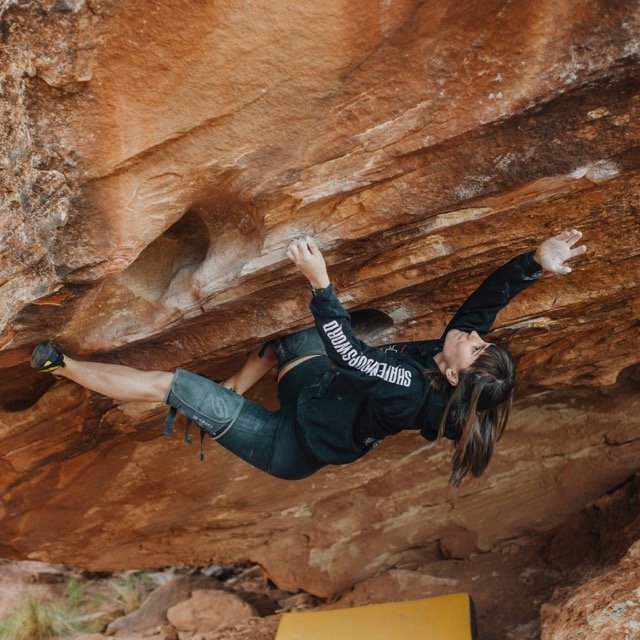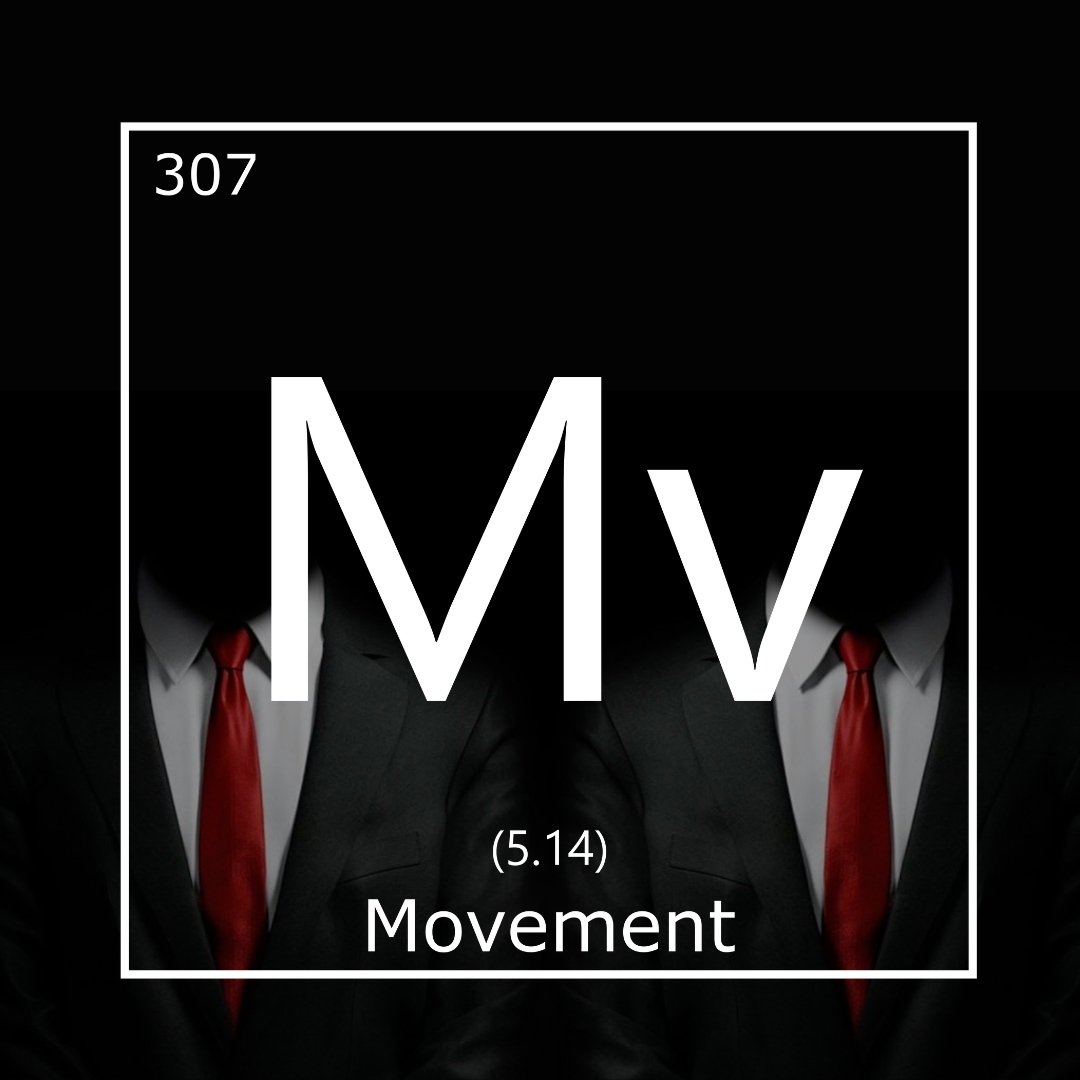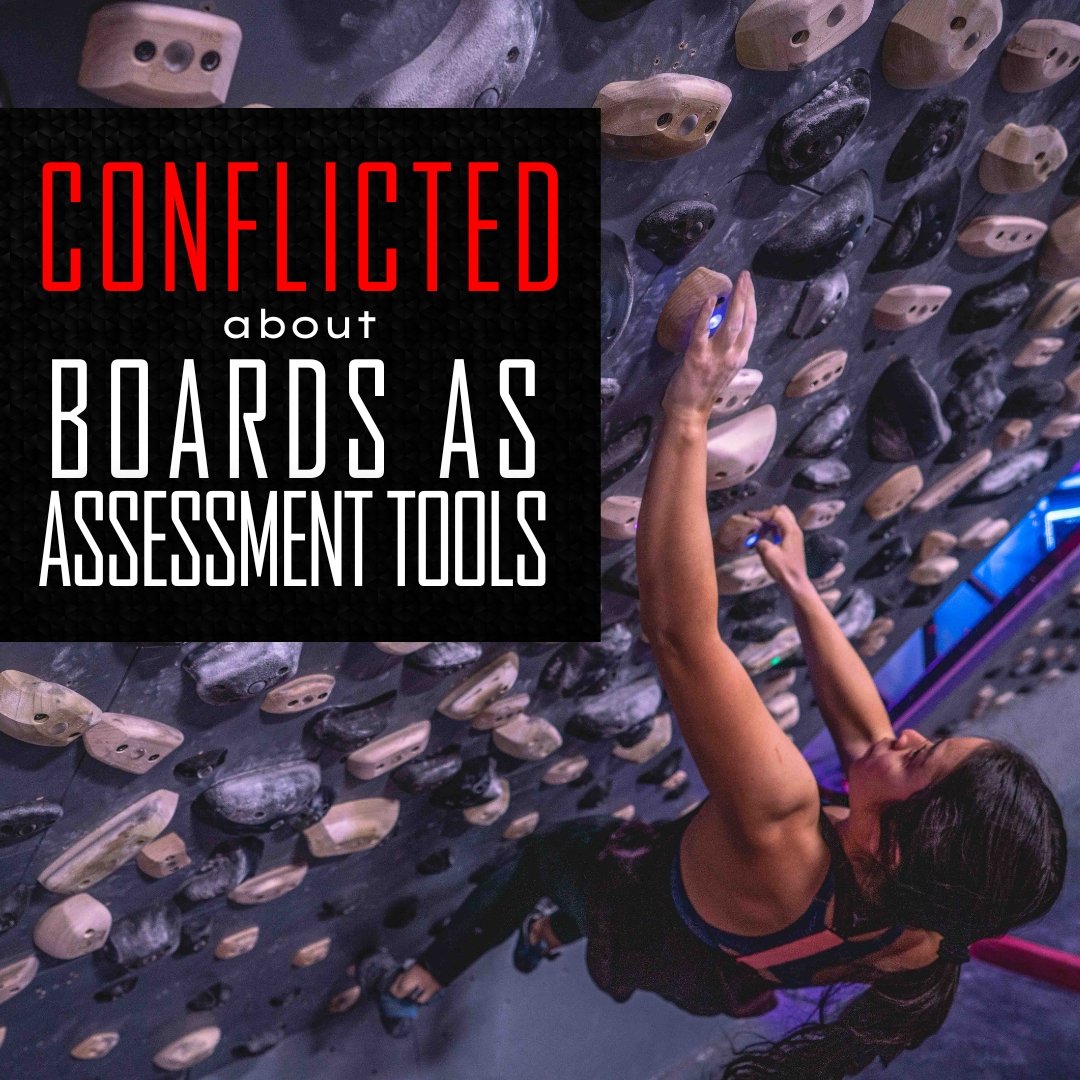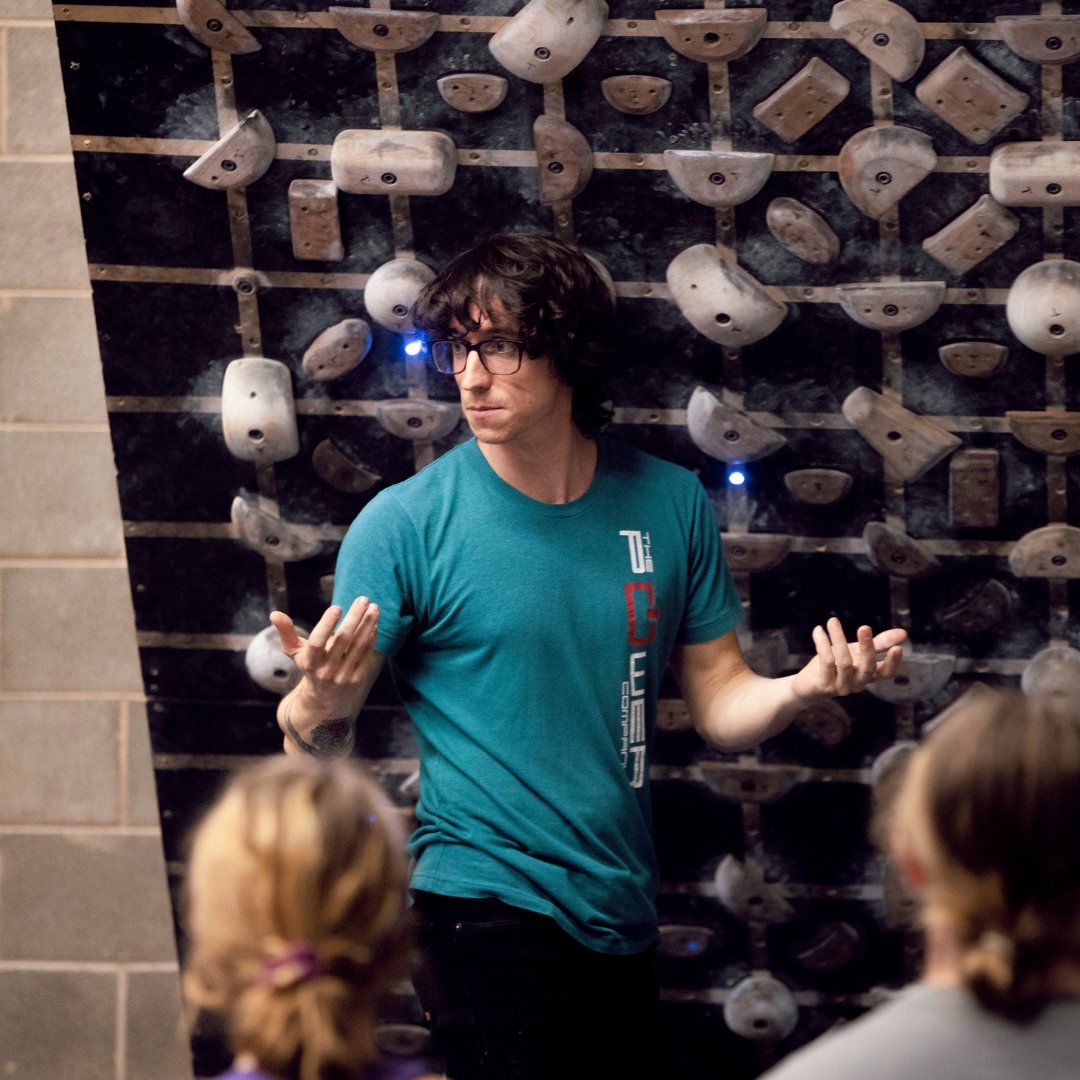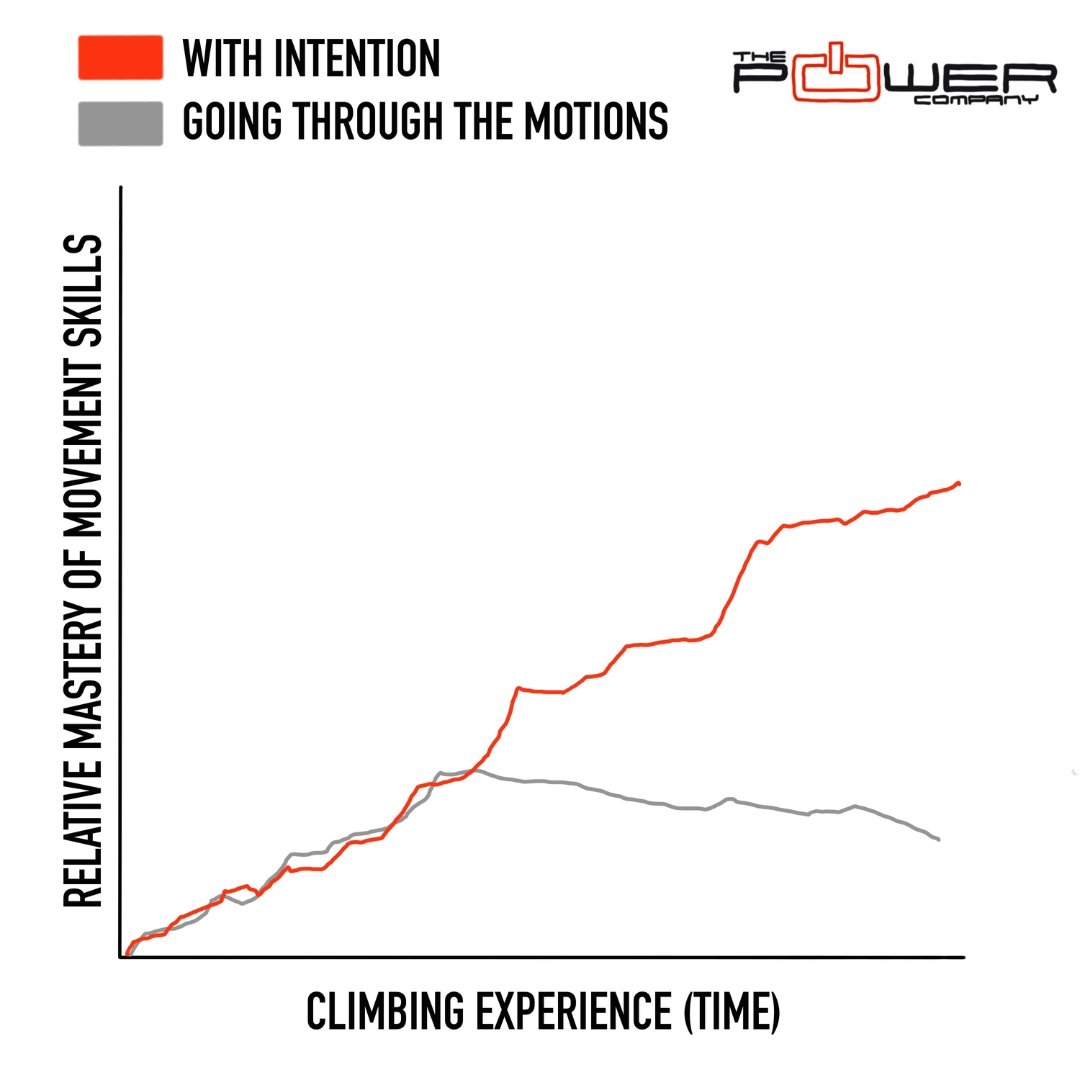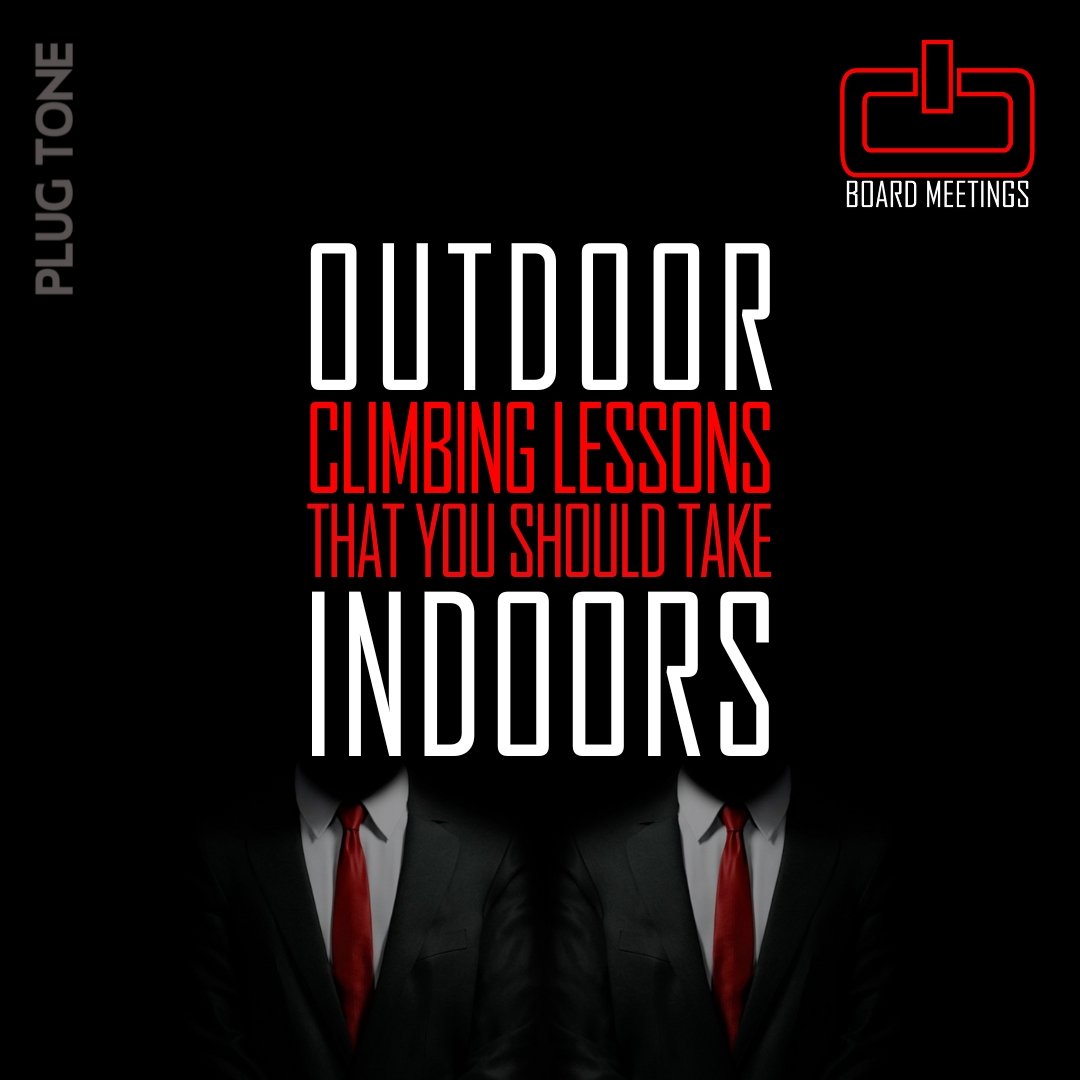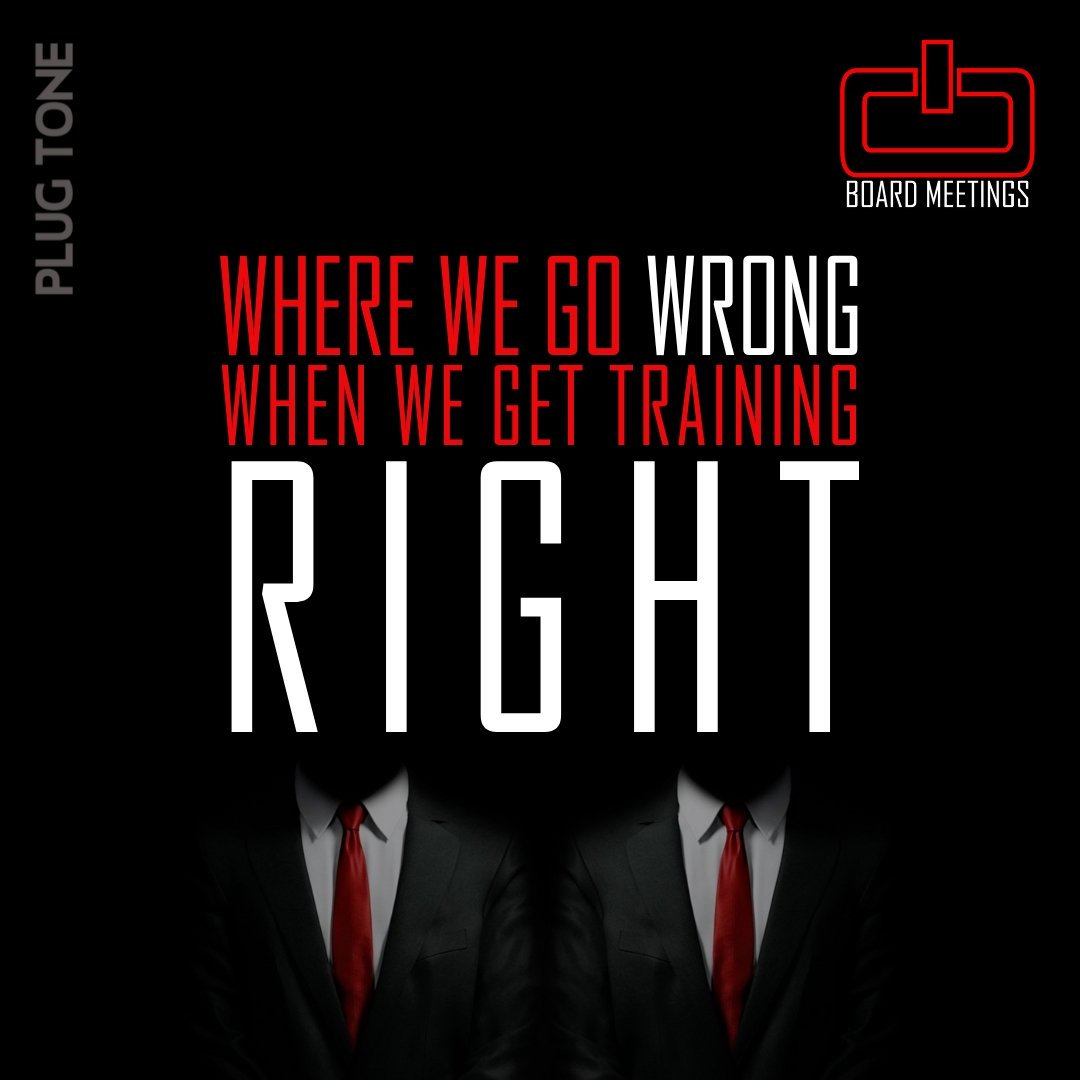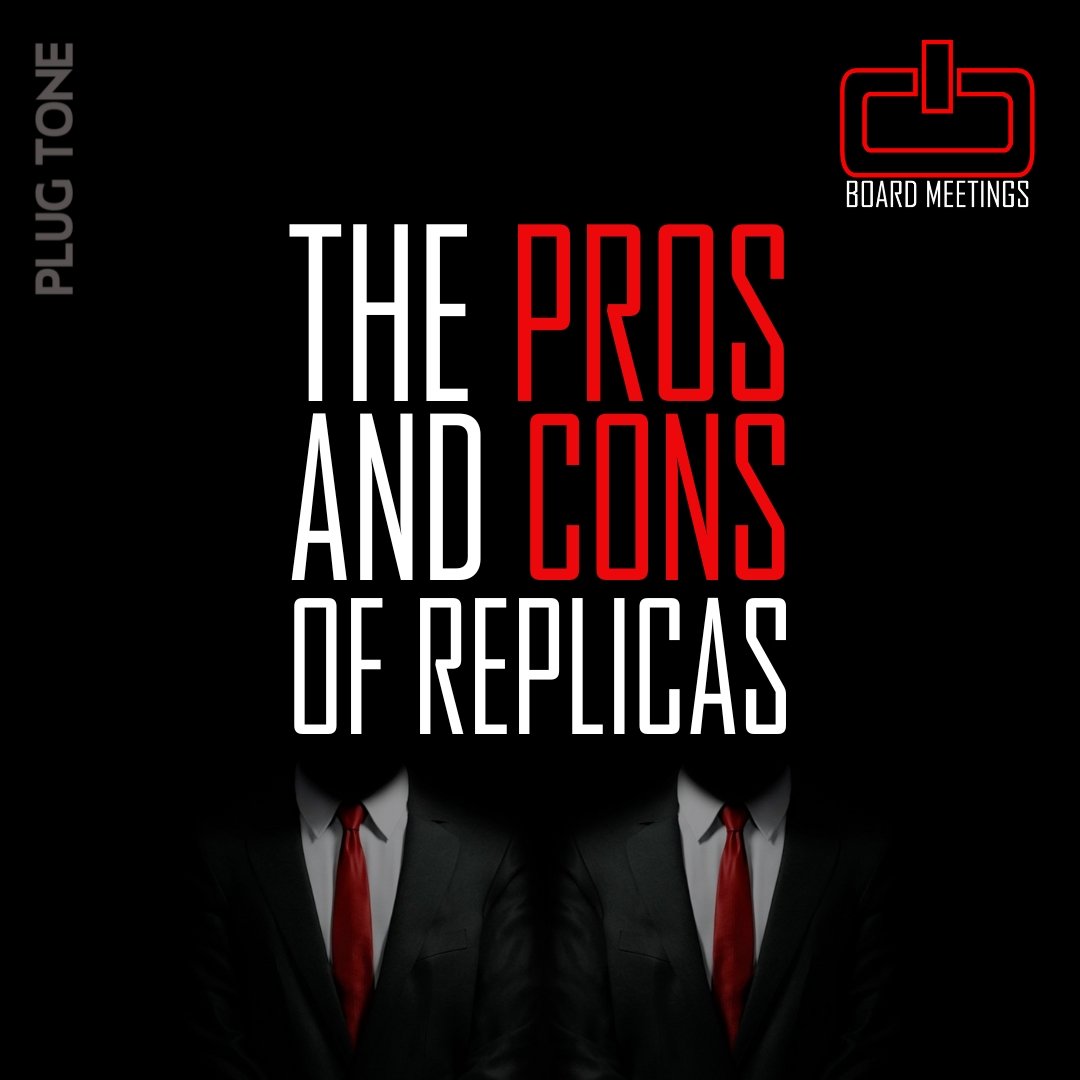Board Meetings | BONUS EPISODE | Things That Should Affect Grades But Don't
In an ideal world, grades would be objective and we’d have some universal formula for how they’re decided. But we don't live in an ideal world.
In this bonus Board Meeting episode, Part 1 of 2 on grades and what affects them, Kris and Nate talk about some things that should be considered when deciding on a grade, but rarely are. They break down these things into two main headings: physical factors (external, environmental, etc.) and user factors (internal, how we as climbers engage with grades) and consider why we seem to ignore some of these factors when determining grades.
This is a bonus episode, so if you want to hear Part 2, become a Patron or Apple subscriber today!
FULL EPISODE TRANSCRIPT:
Kris Hampton 00:37
What's up everybody? I'm your host, Kris Hampton.
Nate Drolet 00:40
And this is Nate Drolet.
Kris Hampton 00:42
And we are gathered here today, dearly beloved's, to discuss grades, specifically, things that should affect grades but for some reason do not affect those grades. And I don't remember if this was your topic, or this was my topic, you came up with one side. And I was like, oh, let's do the flip side, too. I think you came up with the opposite side. And this was my response to it. I think that's the case. But it's, you know, this topic, no matter which way you look at it is maybe going to be a hot button topic for all of time. Eternal. People are going to argue about grades, what the grades should be, why isn't this considered in the grade forever?
Nate Drolet 01:34
Yeah. Yeah.
Kris Hampton 01:36
What do you think? First off, before we even get into this? What do you think it is about grades that makes them so like…
Nate Drolet 01:42
divisive? Ego.
Kris Hampton 01:47
It's gotta be, right? It's like, how we measure how good we are.
Nate Drolet 01:54
Yeah, it is. Because it is funny thinking about it in terms of if you compare it to other sports, and I think, you know, the fact that we don't have exact numbers, and we don't have a method for exact numbers. Other than moodboard benchmarks, obviously. We don't have really a gospel way. The Gospel. Yes. You know, I think if we compare to other sports, like if you look at weightlifting or running for an example, they're both in a lot of senses just chasing numbers.
Kris Hampton 02:29
Sure. And very literally chasing numbers.
Nate Drolet 02:32
Yes. Like, you know, if you look at lifting, I think this is a good example, because, like, let's say I am trying to squat. I don't know, whatever measly weight that I squat, not much. If someone else comes up, and gets in a squat rack right next to me, and they use my weight as their second warmup. I'm not going to be offended. I'm going to look over I'm going to be like, yep, that checks out. Like, you're just those dice. You're just a bigger, stronger human. Like, if anything, man, this actually happened to me the other day, I was like, going through. I think I was doing like forearm finger curls or something like that. Thank God, I wasn't squatting. This dude walks up next to me. And just like clearly fresh out of the car, like Samsung pre workout does a few like leg kicks. What's 135 on the bar 10 Quick, like piston like squats? No rest throws another 45 on each side. So is it to 2510 more, maybe there has been 30 seconds of rest. He goes on another 240 fives and now he's at 315. Another quick 10. And now he goes over drinks a little more pre workout. He's actually starting to stretch out. That was his warm up. And it took him maybe four minutes for him to do things that I was like, well, that'd be a cool lifetime achievement for me.
Kris Hampton 03:57
That was his hike to the crag.
Nate Drolet 03:59
Very much so. But seeing that, I was just like, Man, this is cool. Because he was like, height wise, no different than me. Like, breadth, this was a sturdy human. It was cool. I was just like, dude, this dude is fucking strong. But that equivalent and climbing can be very divisive. Because if you're like, Well, I've been climbing for a long time. I'm over here projecting, let's say V8. And if someone comes up and just warms up on it, it’s their like third warm up, people have very differing responses? Oh, yeah. Like they can be from they can be like, Oh, wow, this person is clearly very good. Like that was cool to watch or they can be like, can't they find something else? Like do they need to come over to my project and do that like they're just showing off? And I you know, I've been on both sides of this. And I can definitely say reflecting back on times when I would get grumpy with people like more warming up on my project. A lot of that was ego. Like fully.
Kris Hampton 05:04
Totally, we should actually just do a whole episode on warming up on someone's project like the having here's how to burn off everyone on this boulder. Yeah, like the pros and cons of it the when do you do it? When don't you? How do you take it when someone does it is that can be an interesting episode. It's a question. I've gotten quite a few times, like people who are warming up and they see someone projecting something and they're like, oh, no, I can't do my warm up now because it's going to hurt this person's feelings.
Nate Drolet 05:37
Oh, man. Yeah, I still have mixed feelings on this because sometimes it's like, hey, hey, this is just it's a, it's a good one. Like, this is good for me. And I'll even tell people sometimes like, like at the motherlode I used to warm up on snooker, which is like classic 13 A, it was like my second warmup of the day. And I would tell people, I'd be like, I have done this probably closing in on a triple digit number of times, I circuit it. Like, if I like, after I do it, it's like, if it looked easy, it's like it's just because I like I used to project this, this was hard work for me to start. Also, don't copy my beta, I skip half the holds to make it harder.
Kris Hampton 06:14
You should just like carry a business card with you. And as you get on, just pass it out to the people at the base so that you don't have to explain yourself every time.
Nate Drolet 06:22
Exactly. You know, and I like brushed the crux holds on my way down to to be like, okay, you know, I like I get it. I'm not trying to increase if your holds or whatever. But, man, it was easy for me. I gotta say guys, saying it's easier year after year. Am I right?
Kris Hampton 06:36
Like 12a now? Yeah, it has to come down to ego, you know, but, but really, whatever it is, it's a thing we're going to argue about forever. You and I think there are a bunch of factors that affect that should affect the grade, we should be discussing, do we change this grade based on these things. But for some reason, we just don't, we just leave them as if they are written in stone forever. And that makes no sense to me. And we've split these up into two categories, environmental factors, like the things that have to do with the the physical, natural environment. And then user factors that are the ways we engage with grades. And with climbing these things that should be altering the grades. So let's let's start environmental factors. And I think the number one reason soar, especially with the soaring popularity of climbing has to be polished holds on almost any type of rock at this point, you know, it used to just be we thought of granite and limestone, but I've definitely encountered some very polished sandstone, whether that's from use of pof or overbrushing overchalking? I don't know. But it's polishing for sure. Yes. And yeah, things get way harder when they're really polished.
Nate Drolet 08:18
Yeah, it it's one of those things, I didn't really recognize that well until having climbed for a long time. And now going back to older climbs that I did early on this year, it's wild. Like there are some betas I simply can't do any more. Because Oh, like that foothold is so polished, that I'm now stepping on a foothold right next to it. That might be worse, but it actually has friction.
Kris Hampton 08:46
Yeah, there are even boulders in my gym that we were all able to do initially, but they've gotten so polished. I've even gone so far as going in with a bucket and a brush and cleaning the holds. Didn't matter. The holds are now polished. And those boulders have become significantly harder. It absolutely happens outdoors to Yeah, yeah, no question. Gosh,
Nate Drolet 09:15
Oh my gosh, the Ock block
Kris Hampton 09:18
That's one of them. Yeah, I've been able to repeat it.
Nate Drolet 09:20
I've never been able to do it. I didn't get it while it was still like fresh. And also like that's a hardstyle for me. Every time I come back I'm like these are getting a little more polish and they were already bad. Yeah. Yeah, I mean outdoors, like things just continue to polish and polish and I'll even add in like slight bits of erosion. Like sharp edges on holds kind of dull over time.
Kris Hampton 09:46
Which is more comfortable but may not bite back.
Nate Drolet 09:48
Exactly. Like I remember. Like, I remember going to problems that were much harder. For me at the time. Like early on, I used to climb with a lot of like really stern On climbers, and I would feel hauled in and be like, Oh, wow, these are actually like, kind of decent. And now like 10 years later that I'm strong enough to climb on these things, I'll go and I'm like, the hole is still objectively as large, but like, maybe those boulders were brand new and fresh at the time in the grid is completely gone, like and you can even see it in beta videos, because you can watch the way some people could do things early on versus how they have to do them now. And it's like, oh, you can't skip holds as easily or you have to match this whole thing, instead of being able to pull through, just because that extra bit of friction has kind of gone away.
Kris Hampton 10:38
Yeah, and if you're a climber, like, especially if you're a climber from like, core sandstone area, like the red, and you've learned to hang on your skin, and then you go to rifle, where you can't ever hang on your skin. Yeah. It can, it can have a radical effect on your ego, the way you're climbing your fear levels when you're climbing. Like it changes so much. And I think that's a cool thing. I like leaning into that discomfort. But you have to wonder, like, what did this feel like when it first went up? Because I can see on this new route over here that there's a lot more texture, and it's not polished to a fine mirror finish like this thing is.
Nate Drolet 11:23
Yeah, yeah, it you know, rifles a good example. I remember the first time I went there. My buddy, Matt Hughes was like, Hey, if you can client, like, everything below 12c is going to be wildly polished. That's just simply how it's going to be. Once you get into the 12+ and higher range, honestly, the harder it gets, the stickier the rock is gonna feel he's like, so don't stress out. He's like, if anything, look at the, you know, elevens as that's a great way to get used to that slipperiness. And if you can get comfortable on those man 5.13 is going to feel grippy. He was right. I mean, like, god those 5.11s on the project wall like Rehabilitator and those things so heinous.
Kris Hampton 12:07
Yeah, totally. That's a good point too, don't let the lower grades factor into your like, complete disdain for an area, because they're going to be the most polished that are in the boulder field or in, you know, at the crag. Everyone is climbing them, you know, there's a line on them every morning to warm up for people's projects. So they're going to be very hateful.
Nate Drolet 12:37
Yeah, yeah. And same thing with popular boulders or even popular sectors. Like in Yosemite. I remember the first time I went, I was climbing around camp for and everyone had always told me that Yosemite was very polished climbing in the granite and can just lend itself to be a little more slippery at times. And so I was like, okay, yeah, it's definitely polished. But then, after my first day, which was bouldering camp for talking with someone, they're like, oh, go to the other areas, they won't be nearly as polished because camp four is where, you know, that's where everyone camp so everyone would go out and boulder there. Right? It's just
Kris Hampton 13:12
everybody and their mom tries the first two moves of midnight lightning with their gym shoes on.
Nate Drolet 13:18
Exactly. So you can like see yourself, you can see your own reflection in that star foot of midnight lightning. But then you go to the other areas, especially like, I mean, they're still great boulders. But immediately, like the texture gets better, it's a lot more sticky. But those climbs in camp for it's not like they're getting upgraded, because there's no longer friction on them.
Kris Hampton 13:39
Right. And that's a funny thing, you know, around here, when we find really good granite, it looks like it's already been polished. Like it looks like a countertop, you know, this, like sandblasted wind varnish that's created. And they are objectively harder than if there was texture on the holds. So you factor that into the grade, you know, this hold is hard to continue gripping. Therefore, this boulder is this grade. But then if you go back to a boulder, that one's had texture, and now it's polished in that same way. You're just like, oh, no, still V5 got to still be V5 That's what it was originally.
Nate Drolet 14:27
Yeah. You know, I think a unique example of this too, is like the sleepwalker boulder in Las Vegas. You know, you talk with anyone who's climbed on it. And a lot of people who looked at it initially, the holds are objectively like, large, you know, by whatever V16 V17 standard. And if it was like really tacky southern sandstone like Rocktown Yeah, that type of like the orb sort of friction. It would be those would be amazing like V10, V11s, right? They're not they're just super slippery. And so therefore it is very hard. But if you take these other like really classic boulders, that when they do get polished, it's not like, you know, we just don't knock them up over time. Because also it's so incremental. You know, you tried going, oh, yeah, this is definitely harder. But how much harder? Is it? Did it go from V10 to V11? And, you know, God forbid, you actually say that out loud. And some old crusty is there to be like, I know when I'll try it. Well, back in my day, it was just as slippery. Like, I've had people tell me that like full service was just as slippery. You know, back in like the 90s as it has now. Come on. And I'm like, Okay, I respect that you've been climbing that long. I do not believe you know, like, Absolutely not. Everything else here in Waco is getting more polished with time. I refuse to believe that the most popular V10 in all of Hueco somehow has withstood getting any more slippery.
Kris Hampton 16:04
Yeah, yeah, totally. You know, beyond just the holds on a route or a boulder. I think we have to talk about the ground also, like if the ground is getting eroded away, especially sit starts can change pretty dramatically. I've even encountered a situation where there was an 11d or 12a scary Trad route R rated trad route in the red that I had tried when I was a tragedy. But it was just too scary for me. And at that time, you could stand on the ground, grab the first hold this big crescent shelf, and your first move was just mantling onto the shelf. Maybe you had to do like a little hop off the ground to get this hold. Yeah. Well, I went back as a sport climber when I was already climbing mid 5.13 and went back to do this thing. And it required that I stand back from the crag as far as I could take a running start, kick off the wall. And I could just tag this hold with one hand as I was like, floating away from the wall.
Nate Drolet 17:20
Funny,
Kris Hampton 17:21
it felt, I don't know. V7 To start, yeah, took me a lot of tries kicking off the lawn trying to grab this hold, you know. And kind of scary because there's brutes sticking out of the ground everywhere. And I'm like, I'm going to twist an ankle. One of these goes, you know, yeah. But but it's still 11 D 12. A, like there's no there's no change in the grade, even though the erosion of the ground which eroded over 12 inches on a route that's not popular, but because all the routes near it are popular and people are walking back and forth under it. It gets devastated. And now the start is drastically different. But the guide book will never reflect that.
Nate Drolet 18:05
Yeah. Yeah. There's Super Slab at military.
Kris Hampton 18:10
Right. This is right next to Super Slab.
Nate Drolet 18:13
Okay,
Kris Hampton 18:13
Literally just to the left.
Nate Drolet 18:15
Okay. I remember talking with Porter, who bolted super slab and he was like, oh, when when I first put it up, like he could just pretty much reach up and like, do a little hop and grab the start jug of super slab.
Kris Hampton 18:29
Where now confirm it that it was that way. When I was first trying this other thing I tried the beginning of super slammed at the same time. Mid 90s
Nate Drolet 18:39
Now that you pull on to cramps and do a hard like Dr. Hive dyno. Yeah, it's like it now you know, this is a 12c slab but it now opens with like, I don't know, V5 V6 boulder that was not factored in. And it's legitimately challenging. Totally. But totally. I
Kris Hampton 18:57
think that's a that's a real thing that happens and we just don't recognize it. I have a question. Do you know of any instance, when someone has put more dirt at the base of a boulder? To avoid the like, super hard sit start where people want to stack pads to make it easier? Has anyone just dumped dirt there and been like it's natural.
Nate Drolet 19:21
And dude, I bet I mean, I don't know if you're gonna hear about it. I mean, I know in Colorado, you know, shuffle rocks, big rocks around because it's always in talus fields to like really get it prepared. But I would love to know if anyone's out there like, you know, bringing a shovel out in the offseason really prepping landings.
Kris Hampton 19:42
Yeah, I mean, like, take. I think it's celestial mechanics at Stone fort. Yeah, the start of that significantly easier. If you stack a few pads and it's a standard start. It's not a sit but significantly easier if you stack a few pads if I just dumped a mound of dirt there. You know, that's natural, right? Yeah.
Nate Drolet 20:01
So that one's interesting. This was the first one I thought of when you brought up erosion. When I first moved to the south, I could grab both starting holds flat on the ground without a crash pad. Now I have to stack to just to reach the left one, you know, and it's wildly popular. There's another whole corridor, super popular people walk through, they drag pads, you know, they move the dirt around a lot. But I mean, it's probably lost like a foot of dirt. Like, which makes the lodestar much nicer. Now, you can start, you know, matched on and underclothing. And that is like at a proper stand start height. But that prime boulder keeps getting, or taller, essentially, because the ground keeps getting lower.
Kris Hampton 20:43
Yeah, eventually there'll be a whole new start below the under clean. Who that'd be great. Few 1000 years. Yeah, climbers of the future. Yeah, and, you know, that sort of brings up the, the ethic and old Trad climbs from eons ago used to be like, if there's hot, really hard to move boulder off the ground, we just don't count that, like you're not even on the route yet. You're just that's the approach or something. So I've done a lot of old Trad routes, where there's a boulder problem at the bottom that just doesn't get factored in. It's like, this is a 5.9 hand crack. But you're doing a V5 to get to the hand crack.
Nate Drolet 21:21
Funny. That kind of leads me into my next one, which is a boulder problems that are before no hands rests.
Kris Hampton 21:33
Hmm, that's an interesting idea.
Nate Drolet 21:36
Like, that one's really strange to me. And it kind of affects the grade sometimes, but not that strongly. Because people are in people always have the same argument, which cracks me up. They're always like, well, you know, you could you could sit in that no hands rest as long as you want. Like, you can eat this sandwich there. You could go off to lay you could do whatever. And I'm like, Yeah, but collective fatigue is a thing. And they're like, no, no, no, it's fine. Like you can because you're fully recover. Okay, cool. Let's, let's just, let's take this to its extreme. Would you like what is your warmup for the day? They're like, Oh, I do like a 511 512. And I start trying my five Thirteen's. I'm like, Well, why don't you try a different 513? First, they're like, Well, I don't want to get tired from my project. It's like, well, but you can sit on the ground, you can eat a sandwich, like why? What difference is it? Anytime you sit down and eat a sandwich, apparently, you know, in your off belay, you can fully recover. Like, what difference is there? Like, well, that's different. It's like, I don't know that it really is. I think it's literally the exact same thing. But yeah, hard boulder problems like a sit down rest. Man, I always get like, upset when those happen, because I'm like, this isn't this isn't counting for anything. Like it's, I still, I still have to do essentially the exact same difficulty of Route above this. You know, you get like a tiny little fraction of a point.
Kris Hampton 22:57
Yeah, also, like, new excavated rests that show up. Oh, this is a real thing in the red like, oh, yeah, somebody does a first ascent, a few people quickly follow. And then somebody goes up there and starts excavating the no hands rest, that's six feet off to the right,
Nate Drolet 23:16
six feet if you're lucky.
Kris Hampton 23:19
And then all of a sudden, there's this new lay down rest, where people are taking naps. But the grade never changes. It's still the same grade as it was put up.
Nate Drolet 23:29
Yeah. Yeah, that's very much a thing. There are quite a few routes in the road where I mean, some of them, it's like, oh, you're gonna be traversing 10 feet off route to go get into that double knee bar over there.
Nate Drolet 23:41
And yeah, you know, what? It somehow the grades the exact same? I don't know.
Kris Hampton 23:47
Yeah, but I've got one that sort of blends us into user factors. It's like part environmental factor, part user factor. And that's cheater stacks, who I think there are some, you know, sometimes a cheater stack is absolutely necessary for anybody of any height and you put the thing there, and that's where it lives. But then there are times where a person just has deemed themselves too short because they can't do the opening moves and build a cheater stack and then someone taller comes up and can skip the boulder. And this has happened a lot of times. I had an instance once in the read on a 12c called Belly of the Beast. Oh yeah. Where I wanted to try and onside it. So we hike out there. We get there and there's this massive cheater stack under it. And I'm like, What is this for? It looks like you could start in the roof under there. Yeah, I'm like, I'm just going to disassemble this cheater stack because it seems pointless. So I disassemble it. I do the route on site. And then the people who had been sitting there all along, not saying a word, reassemble the cheese either stack to get on and skip the entire opening roof boulder problem. Funny. Like, wow, I sort of wish they would have said something. I'm sort of glad they didn't. Yeah.
Nate Drolet 25:14
It Yeah, in the red. I think Zookeepers maybe one of the best examples of a super obvious example? Yeah, it's so unfortunate. Because if this route just started off the ground, like if, if you could just put a jug right at head height and at zero stat like boulders, cheater stacks, essentially, man, top five routes in the country for me like I also don't mind if a route is only 45 feet tall. But it would be so good.
Kris Hampton 25:41
If you had to pull on do two moves and then climb the boulder problem. And no one could skip those moves. It'd be amazing,
Nate Drolet 25:49
incredible. But what ended up happening was it got the first ascent was from someone who used I think two big cheater stacks. I think he's like 5'10". And he did a really hard opening move. And he called it 14 B and that even seemed like potentially a sandbag for how he did it. And then Jimmy Webb came along, who is just over six feet tall, long arms. And from those exact same stones could pull on higher and basically pull on from decent holds.
Kris Hampton 26:19
Yeah, skipping the first move, the first really hard move
Nate Drolet 26:22
Yes. And pulled on from there. And he was like, Man, he's like, it's unfortunate, but just because of my height like I can like this. He's like, it just makes sense for me to pull on from here. And I think it seems like it's unfair for shorter people to not also pull on how I do. And so then it got dropped to like 14a. And then some very short climbers came along a few youth climbers, and they stacked it up high enough to where they could do Jimmy's method. Right. And then taller people came along and we're like, oh, I can keep reaching in from where you pull on. I mean, they can. And this is so silly and unfortunate. Like, there, if I pull on from where some tall people pull on from, it truly is probably a 13c route. Like I've done it from like, I would project the route. And at the end of the day, I would run two laps on it from there, which is also silly, because it's like I only had two moves, but for some reason they were hard for me. Um, but yeah, like, maybe 13c from there. But you know, I also get it because it's a stack. And if you're tall enough, like why not just start from there? Yeah. Yeah, it's so unfortunate. And it's just one of those things of like, I still view it as one of the best and coolest routes I've done. But man has such a big asterisk next to it, like as if someone else was came along. And for me, it's one of the hardest things I've done. But if someone else was like, yeah, no, it's probably like 13. See, I'd be like, No, I totally get it. Like, yeah,
Kris Hampton 27:49
yeah. Yeah, there's a video of Carlo flashing it during the during Rocktoberfest, I think. And, and he skips the first like three moves, which are very hard moves, because by that time, the cheater stack had gotten to like, three or four feet tall. Like you have to, you know, it's like a V2 to get to the top of the cheater stack.
Nate Drolet 28:13
Oh, yeah, I would not go up that thing if I wasn't on belay.
Kris Hampton 28:16
Totally. And, and, you know, no, no shade at Carlo at all, he's certainly capable of flashing it from wherever. But because of that cheater stack, he can just walk up and skip those first several moves. And not only you know, not only is that like, can it be used as a, oh, I'm going to add another cheater stone and then I get to skip another move. But it also can take away from someone's accomplishment when it's a legitimate accomplishment. You know, had Carlo known maybe he would have started lower. Maybe not, I can't say but it's certainly possible.
Nate Drolet 29:00
Yeah. Yeah, it you know, it kind of comes down to what we were talking about earlier with grades and ego. It's like, you know, can you separate your own methods and your own experience from others? Like, can you say well, I did from here and for me, that was the challenge I wanted. And yes, I can see other people are starting higher. And that's cool. They if they get to have a good experience, you know, and that's what they want. Awesome. Also, I think like man, after the boulder problem, it's like maybe 13b/c climbing. Amazing. I went like I wish you could somehow climb jugs and just travel into their incredible Yeah, so that's like, cheater stacks are a really funny thing. Same thing, stacking crash pads. Specially for undergoing starts. Things get a little squirrely there. Like the difference between starting on one pad and two pads for an underling start. Man, that can be a whole V grade right there.
Kris Hampton 29:57
Yeah, absolutely. And there are many, many comment threads on the internet. arguing about it.
Nate Drolet 30:06
Yeah. Well, I will say this while we're on the illegitimate starts. Questionable starts. There is exactly there is one that bothers me. And maybe it probably shouldn't. But I don't have many hard and fast rules and climbing this is just my own. If y'all hear me say this and you're like now that I just don't resonate with that, that's totally fine you do you, but if you have to grab a hold, let's say so you have start hold up a boulder problem if you have to grab a hold further in to be able to put your foot out on a foothold. So let's say you grab the second hold, so that you can walk your feet up maybe even walk your feet onto a pad stack to set a heel hook or a toe hook really high up and far away.
Kris Hampton 30:53
And then move your hand back down, touch the start and go?
Nate Drolet 30:57
Yes. I have strong feelings. I mean look because we can we can ruin a lot of boulders like that. Like oh, I want to do Jade let me go like just bad hang from the jug up top. Like touch the start holds. I think it's too far. I could maybe do the green 45 stand that way. But do I get V10 points? Yeah, like no in this is. I get it everyone gets their own method. I don't know why this one riles me up more than anything. But like if the first ascensionists does it that way. And once again, I don't even believe in like following the first ascensionists methods, but it just feels a little weird. And it's one of those things of like, you can chase some hard boulders this way to where you like, totally. Oh, like I've even seen people will get someone else to like push on their hips. They will hold startled. Someone else will push on their hips to get let them get a heel toe cam like six feet away. Oh, yeah, I've seen this. And then the other person, let's go they pull on and then they just paddle off the heel toe camp through the whole boulder. And here's the thing, like, you might say, well, this six foot four person can reach that heel toe can from the ground. That is true. Are you six foot four? You're not? Well, I'm sorry. That this just this one isn't for you. You don't get to use that beta. Like, I wouldn't skip holds the way like Taylor McNeil does. But I'm not also I'm just not as good of a rock climber. Let's be real. Like he does things for a lot more reasons than his height than me. Absolutely. But yeah, that one for me is like, once again, if that's how you like to boulder go do it. Do not let the way I say things or feel discourage you. But man,
Kris Hampton 32:39
I wish everybody listening could see the like, controlled quiet fury that's happening on your face right now.
Nate Drolet 32:47
I don't know why this one just gets me. Like in the absolute worse. I've had this happen twice before, where I'll be trying to boulder. And I haven't trying it what I consider the legitimate way. And someone will walk up and be like, Oh, well, if you actually grab the second hold, you can throw a tow hook way up above your head on that jug out there. And then you can paddle back to the start to do this boulder. And I just have to be like, thanks. And then they have to watch me they're now going to watch me completely not even try it. Because I'm not going to. And God forbid they ask they're like, Oh, do you not want to try that data? Why not? Yeah.
Kris Hampton 33:27
So that means definitely, it's definitely a real thing. And if you're if you're good at that technique, you can absolutely start looking around for those types of boulders that fit that technique. And you can you can artificially pad your scorecard that way pretty easily. And, and that rolls me right into another way that people chase the big grades, you know, especially in Waco, and on steep Western limestone. And that's the kneepads like I'm all for 100% in line with climbing with knee pads, you should absolutely do it if it makes it a better experience. If it's how you want to climate climate with a knee pad, but be fucking honest about what the grade then becomes. That my first season in Waco when I was like, I want to find a V12 to project I that I had 25 People come to me and say, You know what you should do? You should go do this boulder because now there's a knee bar that makes it way easier. Yeah, I'm like, do you hear yourself? You're saying it makes it way easier. That means the grade is no longer what the grade was that by definition. That's what it means. And they just couldn't accept it and a lot of people will go out chasing those boulders or chasing those roots where they know there are knee bars to be had. But we can still take that guidebook grade, even though we use this knee bar, or these seven knee bars.
Nate Drolet 35:07
more likely. If it's a competition like if you're in the rock rodeo man break those boulders, like for sure those classic thing in the south for the Triple Crown, there is some triple crown beta for bowlers that, you know, you look left and right to make sure it's only you and the person signing your scorecard who's around when you're gonna go do this V9
Kris Hampton 35:30
Right there in the front, I can't remember the name of it.
Nate Drolet 35:32
I mean, there's a couple different ones that you can like totally ruin with beta that you keep between just you and your closest friends like this, this does not hit the internet, and you're never going to see a video of some of these betas for making some of these hard boulders much better, much easier, better, easier. But it's a competition. And like, that's completely different. You know, maybe you just don't log it on your scorecard. If you log it on your scorecard, you know, we got to keep them points. But yeah, like, if you're looking for a challenge. It's, it's this weird. I don't know, cognitive dissonance of you can be like, Oh, I really want to claim this, like something powerful. That's hard for me, because that would be a cool style. And like it'd be a really good representation of has my training has my have my abilities advanced? Exactly. And people will be like, Oh, here's this really steep powerful thing, where you can knee bar, and it's the grade you want, and you can knee bar through the power moves. It's like wait, that that achieves literally nothing of what I wanted. I skipped the power moves. And it's not the difficulty that I'm trying to test myself on. Now, is it still fun that way? Cool. Like there are a lot of really fun, cool, unique knee bar problems. Where I'm like, this is rad. Like, these are totally, this is really unique. I love the way I get to climb on this. It's cool. But that, you know, there's a difference between the bar crawling and saying I'm going to do a jumpy power problem.
Kris Hampton 37:06
Yeah, and I just don't, you know, maybe as guidebooks catch up to this, the grades will start to even out but it really depends on who's writing the guidebook. You know, some people just have this weird reverence for history, and they won't change the grades. And you know, if there's a video out, that's like, here's how to break the grades with knee bars in Waco, and you go chasing those things and keep the same grade, you you are part of the problem. You know, that's just a silly way to approach it. opinion. I can't even be like if you want to do that cool. Now, it's just not cool. I just don't, I just can't. I was interestingly, one of the first scenarios of like, knee pads and knee bar technology coming into play was in rifle with Kurt Smith's Slice of Life, which he put up as the first 14a in the canyon, and and then people came along and as Kneeboarding became more popular, they started finding a bunch of kneebars on the route and downgraded it to 13d. And you know, as a result, Kurt doesn't you know, is has extreme hatred of kneepads and kneebarring but the reality is it did change the grade to be able to do it with all these new bars. So you no longer get the 14a that you wish you had. I think we still should credit Kurt for first 14 and a canyon because he climbed it this way before this new technology was around. He gets that grade. He gets that, you know, achievement, but subsequently, it's become a 13d. However, nowadays for some reason, we just don't change it. Just leave it the way it was.
Nate Drolet 39:08
Yeah, it you know, and I, I will look at this from the opposite side it just a tiny bit. at higher levels, like kneebarring is a skill.
39:20
Absolutely no question.
Nate Drolet 39:22
Like I think some people who don't have any experience knee barring will paint a bit with a broad brush and they're like, Oh, well, if you use any bar, it completely changes everything and it has to be a downgrade. Here's the thing though, some people are actually really good and talented at neighbouring like I was climbing with Dan Mirsky in Waco, and he did Mojo V11. Using some crazy bars. Like he had to invert all these wild things. And he did it that way. And I mean, he had also climbed a bunch of other V11s. That trip to If this was just one of them, right? Like, I am decent at knee bars, I feel comfortable saying that. I tried his method like, because I had a different method that I always used. And I was like, oh, like I done the stand, I was like, maybe I'll check out the sit using his method, tried for a half hour could not do the moves in isolation. And I tried it with someone else who also knee bars a lot. And neither of us could do it in isolation. Shindex is not a thing. If you're like 4'11", or if you're six foot five, yes, shindex exists. But the difference between someone who's like, you know, honestly, like, five, seven and six foot not that big of a deal. Our ankles can flex and dorsi flex. Like, if this wasn't a shin size issue, this was a skill deficit on our part, like Mirsky is just a wizard. And it would be unfair to be like, Well, this one guy knee bar through it. And so that beta exists. So we need to call it easier. Because frankly, like, I don't know, I've never seen any anyone else do it since and I've seen people try.
Kris Hampton 41:08
Yeah, I had a really good taste of that once climbing with Viet and Natalie Hawley. Up. What's the I think it's a V5? It's sort of faces Alf up in the spur.
Nate Drolet 41:22
Walrus? Walrus in a blender?
Kris Hampton 41:25
Yeah. And it's got like a kind of a weird, funky jump move on it. Yeah. And I did it that way. And then v it pulls out a knee pad and does it with this knee bar. And Natalie's trying the knee bar and can't get it to work. And you know, they're roughly around the same size ish. So I was like, Oh, let me try this knee bar. And it felt V10 to me, like, yeah, doing it with the knee bar made absolutely no fucking sense. I could get the knee bar, just like Viet, even though he's smaller than me, shindex is smaller. But I couldn't do the move that way. Yeah, so not You're right. Not all knee bars are created equal. And sometimes the knee bar doesn't necessarily change the grade. But a lot of times, it also does. And that's why we have to be honest.
Nate Drolet 42:20
Yeah, it absolutely can. And I'm not saying it doesn't. Mostly I think there is some argument of and I see this a lot in sport climbing, where people will be like, Oh, well, this person, I see a photo of them wearing a knee pad. Clearly, they are not allowed to take the same grade as anyone else. Because they just happen to have a knee pad on, they don't know how good these knee bars are, were they just nice gums. Like that. Let them you know, like clip a bolt slightly easier, whatever. Like you don't know that person's experience. So I think it's not fair to immediately be like, this has to be easier. But if all of a sudden, like, I mean, if you can go up and be like, Oh, this was V13. But now I can crawl through on knee bars. And it feels like V8 and everyone else says the same thing. Like we have a lot of data points here. It's like yeah, we probably shouldn't call it V13 anymore.
Kris Hampton 43:13
Yeah, you know, to sort of back up a little bit and add another layer to your point. You know, if I go to rifle, and I watch a rifle, local, knee, crawl their way up a thing where they're getting knee bars, every other move. And then I watch another rifle local who may not be as, as like skilled at knee barring only get half of those knee bars. That's not unlike somebody who climbs, you know, full crimping versus open handed and it's like, I'm gonna do this move with an open hand three finger, you're gonna do this move full cramp. You're gonna swear the full crimp way is easier. Totally. And I'm gonna swear it's harder. really skilled knee barring is a similar type of skill, where we're going to constantly just find our best way that may not be the easiest way for other people.
Nate Drolet 44:15
Absolutely. I like climbing fast. Like that is a style that fits me and probably just like my metabolic systems, my endurance style really well. I can't Kneebar the way people do and rifle like people will be like, Oh, I did this with 28 Knee bars. And it's also this weird race to the bottom or someone else. Or it's too it's either like I did with 32 Knee bars. Oh, I did 34 And then other people like well, I only did 17 Knee bars. Like for me. I like to set a new bar you have to get into its own unique position. You have to go you have to place it and then you have to like move off it then you have to take your time to remove it in a specific way. It takes a long time like it takes on So it takes a lot of endurance. But it's a different type. Like, you can kind of sit on your core and your legs a little bit more. Where for me, man, if I can just like pull through on my arms and my hands, I mean in my feet, frankly, because I'm still using them. But if I can shave half the time off, for me to do a route, like I would rather just plug the knee bars where it's like, oh, this is a good one. I can shake both hands clip a bolt. Cool. Let's keep going. Like all the little finicky nice gums that everyone do does, for me feel way less efficient?
Kris Hampton 45:32
Yeah, totally. You just said a phrase that was in your notes for this section, but on a different bullet point. And I really liked the phrase. And that's it's a race to the bottom. And, and your bullet point for another user factor that should affect grade. But doesn't really is this weird? consensus? Yeah. Maybe Maybe this should actually be in shouldn't affect grade, but does. Yeah. Does it fit better there?
Nate Drolet 46:10
So I'm, I'm torn on this? Because I do think I think it can go both ways. Yes. Like, I don't think we really listen to consensus that much.
Kris Hampton 46:19
But I don't think consensus is actually a thing. Okay. And we love to hold it up as like the gold standard. Yeah. But it doesn't work unless everyone is giving their own personal grade without bias from the other grades. And I can't point to a single scenario where that happens.
Nate Drolet 46:36
And bias from other people.
Kris Hampton 46:39
Yeah, exactly. That's what I mean.
Nate Drolet 46:41
Yeah. Like, I can't tell you. There's been a lot of times where me and especially someone will be like, oh, man, I just claimed my first whatever, let's say V8. And it was so cool. And I like I found my own beta. And I'm really happy with the whole process. I'm like, That's rad. Cool. And they're like, Cool. Cool. Come over, I'd love to show you how I do it. And then I see and I'm like, oh, no, they found a better method than everyone else on this. Like, no one has, I don't know, anyone who's seen that heel toe cam, and then you do and you're like, Oh, well, congratulations. Like, I can't say this out loud. But like you found amazing beta. This thing is nowhere near V8 anymore. You were just more clever than all the rest of us were. And I'm but I'm not going to be like, Oh, it's probably like hard. V6 Now, I'm just gonna be like, yep. V8 Because I like this person, in their experience to me is more important than what I call this boulder problem.
Kris Hampton 47:33
Yeah. And it's not really a you know, it doesn't help the situation to be like, Wow, your problem solving skills are fucking top notch. But this isn't V8 Yeah, yeah.
Nate Drolet 47:47
Yeah. Like it? I don't know. It's unfortunate. Like, yeah, we can't have like this anonymous consensus. Also people are. The idea of consensus, I think is also lost on people in the sense that my favorite thing on Red River climbing back when it still existed as a website, people would, let's say for I was 12. D, and like, five stars, because also everything was five stars. If someone was like, Well, this is really a four star 12. See, they would log it as like a two star 12 B, because they want it they were like, well, I'm trying they want to even out the consensus. They were like, I'm trying to bring the whole average down. It's like, yeah, no. So you say you want your points to your vote to count is more. So I will it's just wrong. Like, well, that's not how consensus works. Like. So yeah, I think consensus is funny and flawed for a lot of reasons. But also like, it is, when I say it was a race to the bottom. It means if one person says that this V 10 is actually V9. It doesn't matter if we have 99 other people that say no, it's probably V10. This one brave and humble individual. Craven is the one who is shining the light on the true grade. Fuck consensus. No, we have we have the truth now. And it is whoever says that the lowest with the straightest face, right? Yeah. Yeah. Yeah. So it's, you know,
Kris Hampton 49:16
the only consensus that really matters is the consensus in my head. Exactly. I think I've got one left on here. This, I think was one of your bullet points. What do you have left?
Nate Drolet 49:31
I think just one as well.
Kris Hampton 49:33
Yeah. All right. Let's do it. What's that one? Height? Yeah, height and wingspan. I think this is sort of the big one that that gets grappled with on a daily basis. And because of the way we grade things, we, you know, we have to give it a grade. So we can't give it a grade for every person. You know, it can't be like if you're If you're four foot nine with a negative two, this is your grade. If you're five foot with a plus three, this is your grade. If you're, you know, we can't do that it's never going to happen. So we give it a grade. And then people come in who don't fit the average, whatever that is. And honestly, they should get a different grade. Yeah, but they don't. Yeah.
Nate Drolet 50:26
Absolutely. Like, this is something Johnny. Johnny lightning. Yeah, totally guest on the podcast with Dru Mac episode. man who said he eat his own Croc If Dru Mack did it, which he never did, by the way, he never did, by the way, it still marinating.
Nate Drolet 50:42
He's, he's got the pandemic asterisks there. Oh, pandemic right at the time. And he's like, Well, Dru could have done it. If there hadn't been a pandemic.
Nate Drolet 50:53
Yeah. I think Johnny's What, like six four with a plus four or more.
Kris Hampton 50:59
He's lengthly.
Nate Drolet 51:01
Yeah, enormous. And he refers to things he gives things a lightning bolt ratings. lightning bolts. Yeah. He's like, he's like, this is my own system. Like, you know, I think this is, you know, this V8 might be eight lightning bolts, because that's what it feels like to me. But also, he's also really good at jumping, especially for a very wiry person. Like you went to South Africa and cleaned up like he did some like, super hard, like, rarely repeated, like V12 dynos and he's like a nine lightning bolts, you're with, like seven lightning bolts is like, I'm just giant and good at jumping. But there are times where, you know, like, see Spot Run, is something that is still very challenging for him. Like, he's just like, Yeah, you know, that thing I find really, really hard. And he takes things kind of at his own. Like, he looks at them as the subjective difficulties, which is kind of what we should all do to some degree. But I don't know it.
Kris Hampton 52:02
He knows he's an extreme outlier. Yeah. And he's also a good climber and, and maybe, maybe like, top 1% at chasing down the things he knows are going to fit him. Well, yeah. You know, I wish I was as good at that as he is. I'm not even close. Like I get too caught up in Oh, this is really fucking hard for me. I want to do this. Yeah. And I could I could on paper be a much better rock climber if I didn't do that. Totally. So he's very good at that. And he's a good climber. So no, no shade thrown your way, Johnny? No, not even you already know. You have your own system. Yeah.
Nate Drolet 52:44
Yeah. And that's, you know, for these extreme outliers, like, it would be so awesome if we had these categories that every one could be in. And so there could be more objective with grades. Unfortunately, we don't. So it's like, for shorter climbers, there are problems that will actually be easier for them. Like, yeah, not super common, but not as common is it's going to be harder because of span. But there are options. And same thing, like with taller climbers, like a lot of people are like, Oh, well, you know, they don't even really climb, they just stand and reach. When I say a lot of people. I mean, that's what I say. But they're like I coach enough really tall climbers who in the mid six foot range, man, they're things that are just real hard for them. Like, that's totally just the case. So yeah, I think height absolutely should affect grades.
Kris Hampton 53:39
It's a slippery slope, though. You know, like, if you're a person who's on that, you know, in that outlier zone, whether you're shorter or taller, or have a tiny wingspan or you know, albatross arms, whichever, it's really easy to start pointing to that instead of, Oh, I'm just really bad at slopers. Or, I'm not mobile enough to get these to get my feet up. You know, it's, it's because I'm tall. It's not because stiff as a board. Yes. It becomes a really slippery slope when you start thinking. Everything is subjective. Let me give everything my own grades. It's really easy to overlook your holes.
Nate Drolet 54:24
Yes. And I think that's where that's why it's kind of hard to have an open and honest conversation about this. Yeah, because look like if you're five feet tall, No one wants to hear you complain about how short you are. Like, because complaining is also just not fun. But also we all see it. We all we're all looking down at you.
Kris Hampton 54:45
Looking down at you, like
Nate Drolet 54:47
we know how small you are. Like, if anything like when I see someone short, like just owning massive moves. I'm like, that's so cool. Like I want to be able to climb the way they do and I think that way up more much more often with really short climbers than with really tall climbers. Like when I see someone who's like, five, one just jumping like, full wingspan between every move. I'm like, Dude, if I could climb half as powerfully as them, man, that'd be cool. I want to be able to do that on my own scale. Like, but here's the thing, the people I see who can maximize their abilities. I'm just gonna specifically say for short people, they're typically not the people that complain about being short. Like, it's just a given. They know it. They know. Like, they might be like, Man, that V5 was nailed. It was just as hard as the V 11. I did yesterday. And that's, if anything, I'm like, hey, that's cool. I see that you put in like three sessions. And that doesn't sound like complaining. That's just stating objective facts. Like I had to put in three sessions to do this. Stupid V5 But I did it because it was a challenge. I'm like, That's rad. Yeah. Well, yeah.
Kris Hampton 55:57
What's the 12a Bob Marley dog. dogleg, dogleg. Yeah, you know, Michaela and Cat both doing that may be the most impressive feats of rock climbing in history. Yeah. I mean, that's, that's like, that's 15d level as far as I'm concerned.
Nate Drolet 56:18
Yeah. Massive moves. super impressive.
Kris Hampton 56:21
But they both take 12a for it.
Nate Drolet 56:23
Yes. Which is also crazy to me. I mean, like the day I did Ultraperm. I warmed up tried to do dogleg didn't do it. And I am much taller than them.
Kris Hampton 56:36
Like that's funny. You say that I was trying to use dogleg as a warm up for ultra perm several times and realized it was totally destroying my session. I would get to ultra perm and feel like this is the hardest route in the world. And then once I stopped doing dogleg as a warm up, I was like, oh, much more manageable. Now. I have some power left.
Nate Drolet 56:57
Yeah, I would say the exact same thing. I would try and warm up on it before Ultraperm. And then the day I did it. I think I actually decided to skip it as my warm up that day. But then I sent UltraPerm I was like, Okay, this is the day I'm on fire, walked over dogleg put in like five tries could not do it. I still haven't done that route. Like
Kris Hampton 57:18
it's easier to warm up on ultraperm than it is to warm up on dogleg.
Nate Drolet 57:21
Yes. And for anyone who is are familiar. dogleg 12a, Ultraperm 13d.
Nate Drolet 57:27
Like, yeah. Yeah, it like height should. And I think it's good to look at people who recognize their height is like sometimes a weakness, you know, and you like, accept it. Because no matter what your body size is, it's not going to fit every problem. And you can be the perfect like, normative standard of elite rock climbing, whatever that looks like or means. And you're still going to find things where you're like, Well, this is an uncomfortably high feet, high foot or this move is much larger than I can physically span. That's just gonna happen. You know, accept it, see it as a challenge. And maybe you can personally be like, Okay, this is just going to be harder for me. And that's cool. That's fine.
Kris Hampton 58:12
Yeah. And just know that Johnny lightning is always going to be looking down on you with pity. Yes. All right. Let's do the flip side of this things that shouldn't affect grade, but do and I think this one, while this was initially going to be a patron episode, I think this one's going out on the regular board meeting feed. And the next the flip side of this will be for the patrons so if you are interested in becoming a patron getting more conversations like this, we have at least two a month oftentimes there are three or four episodes that come up for the patrons every month. You can do that for $3 a month at patreon.com/power company podcast or you can get those right in your apple podcast app by subscribing to power company plus, so let's jump over into this next episode and like my dude Nalle Simon says, we don't tweet we scream like eagles.






